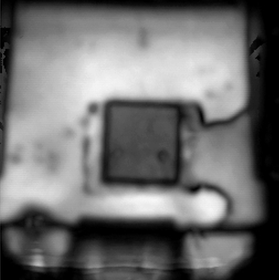It is possible to estimate higher resolution feed organisms! Introduction of next-generation sequencing analysis examples *Analysis case collection is being distributed.
In our company, when preparing amplicon samples aimed at analyzing the microbial community structure present in plant leaves, we add PNA to suppress amplification from plant mitochondrial and chloroplast origins, resulting in favorable outcomes. Without the addition of PNA, approximately 90% of the acquired data consists of amplification products derived from the host. By adding PNA, we can reduce this to about 10%, allowing for a higher resolution estimation of the target organisms. [Results of condition testing with 4 sample units] ■ Ct1-Ct4: No PNA added ■ Mt1-Mt4: PNA added for mitochondrial blocking ■ Pl1-Pl4: PNA added for chloroplast blocking ■ PM1-PM4: PNA added for both mitochondrial and chloroplast blocking *For more details, please refer to the PDF document or feel free to contact us.
Inquire About This Product
basic information
For more details, please refer to the PDF document or feel free to contact us.
Price range
Delivery Time
Applications/Examples of results
For more details, please refer to the PDF document or feel free to contact us.
catalog(3)
Download All CatalogsNews about this product(1)
Company information
In recent years, advancements in molecular biology have led to remarkable progress in research such as the determination of the complete genome sequences of organisms and subsequent gene function analysis. Along with these technological advancements, molecular biological techniques such as nucleotide sequence analysis, real-time PCR, and DNA chips have become widely utilized in the field of food analysis. Since its establishment in 2001, Fasmak Co., Ltd. has been developing technologies for the "Japanese Standard Analysis Method" for genetically modified foods and food allergens in collaboration with related agencies of the Ministry of Agriculture, Forestry and Fisheries and the Ministry of Health, Labour and Welfare. The developed testing technologies are provided not only in Japan but also in the United States, China, and other countries. Additionally, Fasmak has been actively engaged in international standardization activities for "food inspection methods using molecular biological techniques" since its establishment, and its technical capabilities are internationally recognized. Furthermore, in partnership with Eurofins Scientific, one of the world's largest testing companies, Fasmak is advancing the introduction of the high technical capabilities possessed by the Eurofins Group. Moving forward, Fasmak will continue to provide world-class new testing technologies to everyone.



![[Case Study Collection - Free Download] Next-Generation Sequencing Analysis](https://image.mono.ipros.com/public/catalog/image/01/10e/615576/IPROS36810353806721836024.jpeg?w=120&h=170)










![[Analysis Case Study] Observation of Adhesion State Through Metal Plates Using Ultrasonic Microscopy](https://image.mono.ipros.com/public/product/image/367300/IPROS2705829217984245675.png?w=280&h=280)
